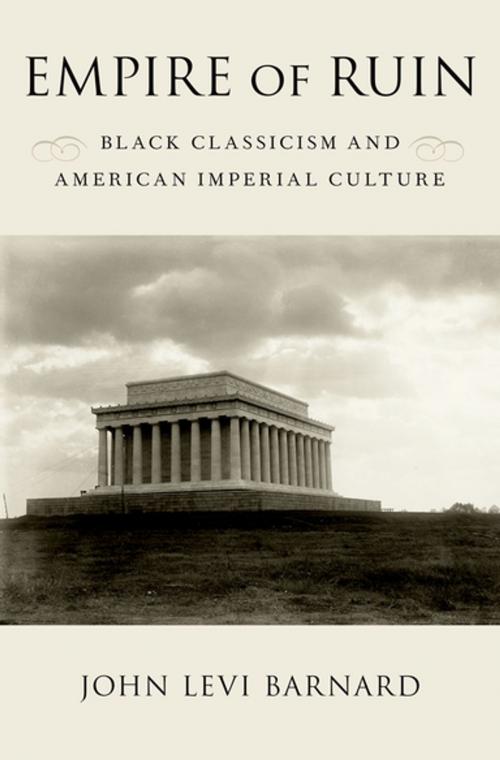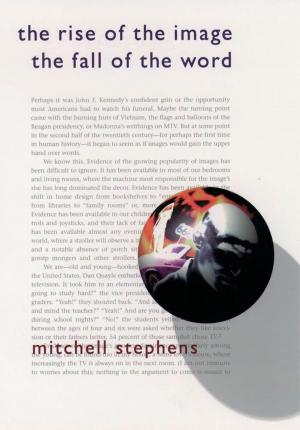Empire of Ruin
Black Classicism and American Imperial Culture
Fiction & Literature, Literary Theory & Criticism| Author: | John Levi Barnard | ISBN: | 9780190663612 |
| Publisher: | Oxford University Press | Publication: | October 2, 2017 |
| Imprint: | Oxford University Press | Language: | English |
| Author: | John Levi Barnard |
| ISBN: | 9780190663612 |
| Publisher: | Oxford University Press |
| Publication: | October 2, 2017 |
| Imprint: | Oxford University Press |
| Language: | English |
From the US Capitol to the Lincoln Memorial and the 9/11 Memorial Museum, classical forms and ideas have been central to an American nationalist aesthetic. Beginning with an understanding of this centrality of the classical tradition to the construction of American national identity and the projection of American power, Empire of Ruin describes a mode of black classicism that has been integral to the larger critique of American politics, aesthetics, and historiography that African American cultural production has more generally advanced. While the classical tradition has provided a repository of ideas and images that have allowed white American elites to conceive of the nation as an ideal Republic and the vanguard of the idea of civilization, African American writers, artists, and activists have characterized this dominant mode of classical appropriation as emblematic of a national commitment to an economy of enslavement and a geopolitical project of empire. If the dominant forms of American classicism and monumental culture have asserted the ascendancy of what Thomas Jefferson called an "empire for liberty," for African American writers and artists it has suggested that the nation is nothing exceptional, but rather another iteration of what the radical abolitionist Henry Highland Garnet identified as an "empire of slavery," inexorably devolving into an "empire of ruin."
From the US Capitol to the Lincoln Memorial and the 9/11 Memorial Museum, classical forms and ideas have been central to an American nationalist aesthetic. Beginning with an understanding of this centrality of the classical tradition to the construction of American national identity and the projection of American power, Empire of Ruin describes a mode of black classicism that has been integral to the larger critique of American politics, aesthetics, and historiography that African American cultural production has more generally advanced. While the classical tradition has provided a repository of ideas and images that have allowed white American elites to conceive of the nation as an ideal Republic and the vanguard of the idea of civilization, African American writers, artists, and activists have characterized this dominant mode of classical appropriation as emblematic of a national commitment to an economy of enslavement and a geopolitical project of empire. If the dominant forms of American classicism and monumental culture have asserted the ascendancy of what Thomas Jefferson called an "empire for liberty," for African American writers and artists it has suggested that the nation is nothing exceptional, but rather another iteration of what the radical abolitionist Henry Highland Garnet identified as an "empire of slavery," inexorably devolving into an "empire of ruin."















